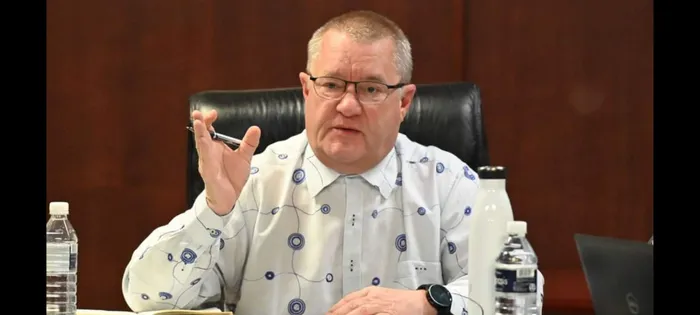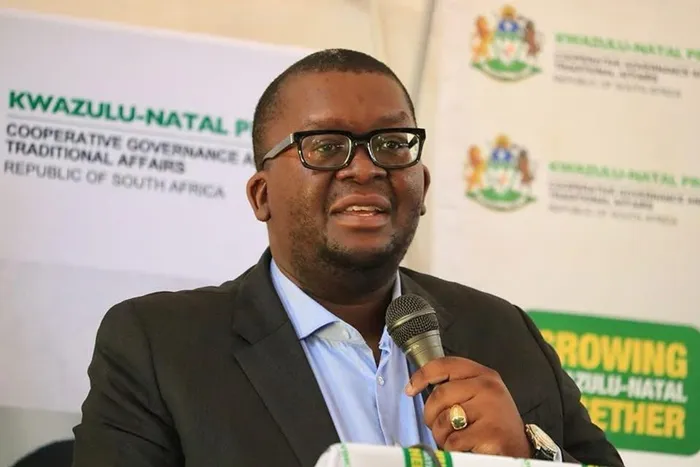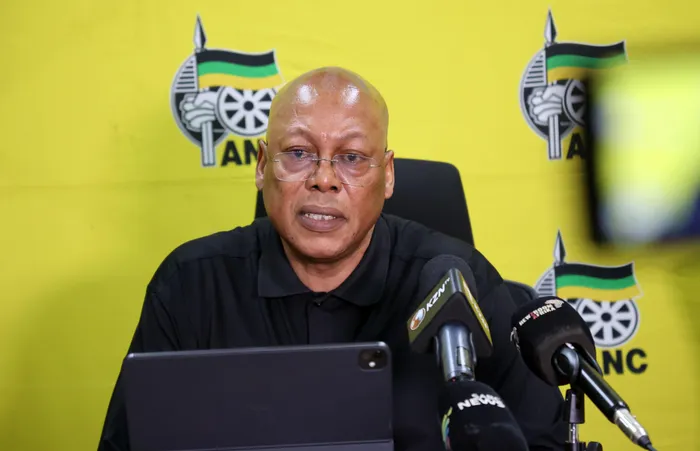
KZN's Finance MEC Francois Rodgers made some damning statements about corruption in governance
Image: Supplied

KZN Cooperative Governance and Traditional Affairs MEC, Thulasizwe Buthelezi, an IFP deployee, is accused of weaponising the issue of the ANC-led uMkhanyakude District Municipality for political gains.
Image: KZN Cooperative Governance and Traditional Affairs

ANC KZN provincial co-ordinator Mike Mabuyakhulu has urged coalition partners in the Government of Provincial Unity to act with discipline and cooperation, as tensions over political accountability and executive powers.
Image: Tumi Pakkies/ Independent Newspapers
KwaZulu-Natal’s coalition government is facing renewed strain, with the DA and IFP-appointed MECs of Finance and Cooperative Governance and Traditional Affairs (CoGTA), respectively, being accused of 'weaponising' positions and targeting ANC-led municipalities and departments.
This comes after the Finance MEC Francois Rodgers claimed sweeping powers to place provincial departments under administration, a move swiftly dismissed by both the ANC and the legislature’s Economic Affairs committee as legally baseless and politically reckless.
Speaking at a Democratic Alliance (DA) gathering in Kokstad last weekend, Rodgers declared that the Treasury had already taken over the provincial Education Department’s finances following budget overruns and suggested that the Department of Transport could be next.
Citing Section 16 of the Public Finance Management Act (PFMA), he asserted that he was no longer bound by political directives and could act independently to intervene in troubled departments.
Legal limits
But Mafika Mndebele, chairperson of the legislature’s portfolio committee on Economic Affairs and Tourism, fired back, calling the remarks “misleading and devoid of legal basis.”
“Section 16 of the PFMA only empowers the national Minister of Finance to release limited emergency funds,” Mndebele explained.
“It has nothing to do with administration. At the provincial level, Section 25 applies, and even then only for emergency funding capped at 2% of the provincial budget, with strict reporting obligations to the legislature. That’s all.”
Mndebele stressed that the authority to place departments under administration lies in the Constitution, not the PFMA. Section 100 governs national interventions in provinces, while Section 139 applies to municipalities.
“The Finance MEC has important responsibilities, enforcing the PFMA, safeguarding public funds, and investigating financial systems, but nowhere does it give him the right to seize control of entire departments,” he said.
ANC warns against ‘weaponising’ positions
The ANC’s KwaZulu-Natal provincial leadership echoed this critique, accusing Rodgers of abusing his office for political gain. Provincial coordinator Mike Mabuyakhulu said Rodgers’ actions amounted to “political targeting” of ANC-led departments under the guise of financial oversight.
“No MEC is a freelancer in government,” Mabuyakhulu told reporters in Durban.
“This is repugnant behaviour and cannot be left unchallenged. None of our partners in the Government of Provincial Unity can weaponise their positions against one another.”
Meanwhile, the CoGTA MEC, Thulasizwe Buthelezi, has faced similar accusations for putting the beleaguered ANC-run uMkhanyakude District Municipality under administration, with Mabuyakhulu saying his move was unlawful and reckless.
“The imposition and continued presence of the so-called ministerial representative, Mr Bamba Ndwandwe, continues to disrupt the smooth running of the municipality,” Mabuyakhulu said.
“The presence of this imposed intruder meant the municipality cannot access its bank account. It cannot pay workers’ salaries and its service providers or honour its daily service delivery commitment," said Mabuyakhulu.
Ndwandwe is the uMkhanyakude District administrator who recommended that two senior ANC leaders in the northern KZN region should face criminal charges for accepting a bribe of R10 million from Minathi Consulting Engineering, the company that won the incomplete R153 million Nondabuya water scheme.
However, the mayor of uMkhanyakude, Siphile Mdaka, said Ndwandwe shouldn't absolve himself from the matter, as most payments to Minathi Consulting Engineering were approved by him.
Mdaka said the R10 million bribery accusation is an attempt to tarnish the image of the ANC, as most of the transactions were approved by a CoGTA's Municipal Infrastructure Support Agency (Misa).
Mdaka said the issue of the R153 million water project is in the Pietermaritzburg High Court, as they are pursuing Minathi to pay back about R24 million, which was discovered to have been overpaid.
Coalition under strain
The Government of Provincial Unity (GPU), formed after the 2024 provincial elections produced no outright majority, is made up of four political parties, including the ANC, IFP, DA and the NFP.
While the Jacob Zuma-led uMkhonto weSizwe Party (MKP) received the most votes, it has no representative who is a member of the executive committee (MEC) in the provincial government.
Despite being purportedly designed to ensure stability, the coalition has become a contested space where partners compete for influence while being tasked with governing together.
Mabuyakhulu insisted that the ANC remains committed to the GPU, describing it as “a tactical site of struggle” but also a necessary instrument for cooperation.
“We are in the GPU not for expediency, but because we owe our people stability and decent governance,” he said.
He called for urgent meetings of the GPU’s key structures, including the Daily Management Committee, the Political Oversight Council, and a dispute resolution mechanism, to prevent further friction from destabilising provincial governance.
Tensions ahead
For now, the ANC has ruled out withdrawing from the coalition, but the clash over Rodgers’ claims has laid bare the fragility of the arrangement. Analysts warn that the GPU, conceived to prevent political deadlock, is increasingly being tested by blurred lines of authority and competing political ambitions.